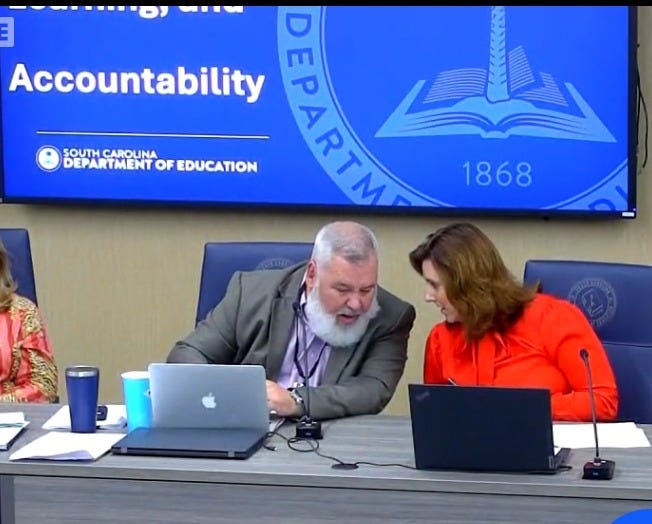State Board Committee Considers More Book Bans
They include two award-winning novels, a state-adopted textbook, and a book previously chosen by the committee.
The South Carolina Department of Education’s Instructional Materials Review Committee is currently considering four books for removal from every school in the state. One of these, Ellen Hopkins’ CRANK, had previously been chosen by the Instructional Materials Review committee along with ten other books. The committee voted to postpone its decision on CRANK, while banning seven books from every school in the state and retaining three others.

The remaining books each come from Fort Mill Schools, where a single parent challenged them.
Unlike the last round of challenges considered by the committee, the texts listed on the committee website do not include staff recommendations. Instead, the three books challenged by the parent include low-resolution images of the parent’s complaints, while …
Keep reading with a 7-day free trial
Subscribe to Other Duties (as assigned) to keep reading this post and get 7 days of free access to the full post archives.



